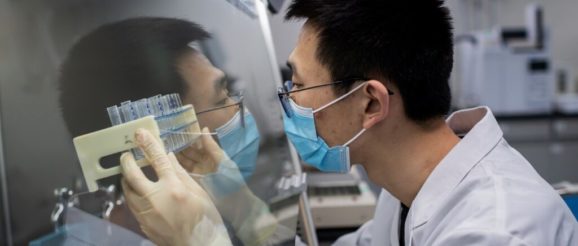Using Bayh-Dole march-in rights would slow Covid-19 innovation – STAT

Scientists across America are working hard to develop treatments for and vaccines against the novel coronavirus that causes Covid-19. Unfortunately, several activist groups are making their jobs harder.
Doctors Without Borders is urging governments to seize the patents on any coronavirus therapies that benefited from taxpayer-funded research. Universities Allied for Essential Medicines is making a similar push. These groups claim that such steps are necessary to prevent industry price gouging.
Their efforts are misguided. Confiscating patents would damage the innovation ecosystem that has generated breakthrough therapies and enabled scientists to work so quickly on Covid-19.
Several firms have already pledged to make coronavirus treatments widely accessible. Gilead says it will donate enough doses of its experimental antiviral remdesivir to treat 140,000 seriously ill patients. Johnson & Johnson promises that if its vaccine proves effective, it will provide 1 billion doses at cost. Cigna and Humana, two of the nation’s biggest health insurers, have already waived all coronavirus-related copays and coinsurance.
And leading research universities, through an initiative led by Harvard, Stanford, and MIT as well as one led by the organization I once led, AUTM, have promised to make patented inventions requiring less investment and risk freely available so they can be developed quickly.
Despite these actions to ensure that coronavirus treatments are widely available, activist groups still want the government to seize patents outright or to exercise the “march-in” rights detailed in the Bayh-Dole Act of 1980. To see why such action would backfire, consider how the drug development process currently works.
The federal government funds much of the country’s basic scientific research. Typically, this research has no immediate medical application. University and nonprofit labs receive relatively small federal grants — generally less than $3 million — to investigate unanswered questions, such as whether a specific genetic mutation puts patients at higher risk of developing a particular disease.
These investigations often don’t lead anywhere. But sometimes academic scientists discover crucial insights. The Bayh-Dole Act allows those them to patent their findings and license them to private companies, which have the resources to turn the insights into tangible products.
Those resources don’t guarantee success, of course. Just 12% of experimental medicines that enter clinical trials ultimately receive FDA approval. Accounting for this failure rate, firms spend $2.6 billion, on average, to bring a single drug to market. A federal grant of $3 million is just one-tenth of 1% of this cost.
When the process does succeed, the results can be awe-inspiring. The Bayh-Dole Act played a role in the creation of almost 300 new vaccines and drug therapies, including breakthrough treatments for human papillomavirus, hepatitis B, HIV, and Crohn’s disease.
Before the law was enacted, the government retained ownership of patents filed by academic institutions that received federal grants. But before 1980, the government licensed fewer than 5% of its 28,000 research patents to private firms. The rest effectively sat in folders gathering dust — a huge waste of taxpayers’ dollars and scientists’ hard work.
Universities have done a much better job of licensing patents than the government ever did. In 2018 alone, academic institutions issued 9,350 licenses to commercialize their discoveries.
All told, the law has grown the U.S. economy by up to $1.7 trillion, helped launch over 11,000 technology startups and, from 1996 on, supported over 5.9 million jobs — a stellar return on investment for taxpayers.
Sign up for D.C. Diagnosis
An insider’s guide to the politics and policies of health care.
Bayh-Dole could soon play a role in the production of lifesaving coronavirus therapies. Consider Moderna, a biotech firm that’s already conducting human trials for its coronavirus vaccine. According to the firm’s website, its intellectual property estate includes “licenses to pioneering discoveries from Harvard University and the University of Pennsylvania.”
Researchers are also studying potential Covid-19 therapies at the University of Pittsburgh, Johns Hopkins University, Duke University, the University of Texas at Austin, Colorado State University, the University of Wisconsin-Madison, Washington University in St. Louis, and others.
They will likely license any discoveries to private-sector firms — unless politicians stifle this cooperation by misapplying Bayh-Dole’s “march-in” rights. That provision allows the government to force the relicense of patents in rare instances, such as when a firm has licensed a patent but deliberately not commercialized it.
Activist groups want the government to use march-in rights as a price control — but that was never Congress’ aim. In 2002, Sens. Birch Bayh (D-Ind.) and Bob Dole (R-Kan.) explicitly clarified in a letter to the Washington Post that their law “did not intend that government set prices on resulting products. The law makes no reference to a reasonable price that should be dictated by the government. This omission was intentional …”
No administration has ever employed the Bayh-Dole march-in rights for that purpose — and for good reason. Doing so would undermine America’s innovation ecosystem. After licensing university patents, private firms spend enormous sums on additional research and development.
If the government could arbitrarily march in and seize intellectual property, investors would hesitate to fund the research that has brought us so many innovations. There would be far fewer partnerships and licensing deals between companies and universities. And that would inevitably slow the development and reduce the availability of new treatments and vaccines, hurting patients everywhere. Affordability is a goal all parties share, but without a pipeline of novel products, pricing becomes irrelevant.
Fred Reinhart is a past president of AUTM with 35 years of experience in academic technology transfer at the University of Massachusetts, New England Medical Center, Wayne State University, and the University of Michigan.
